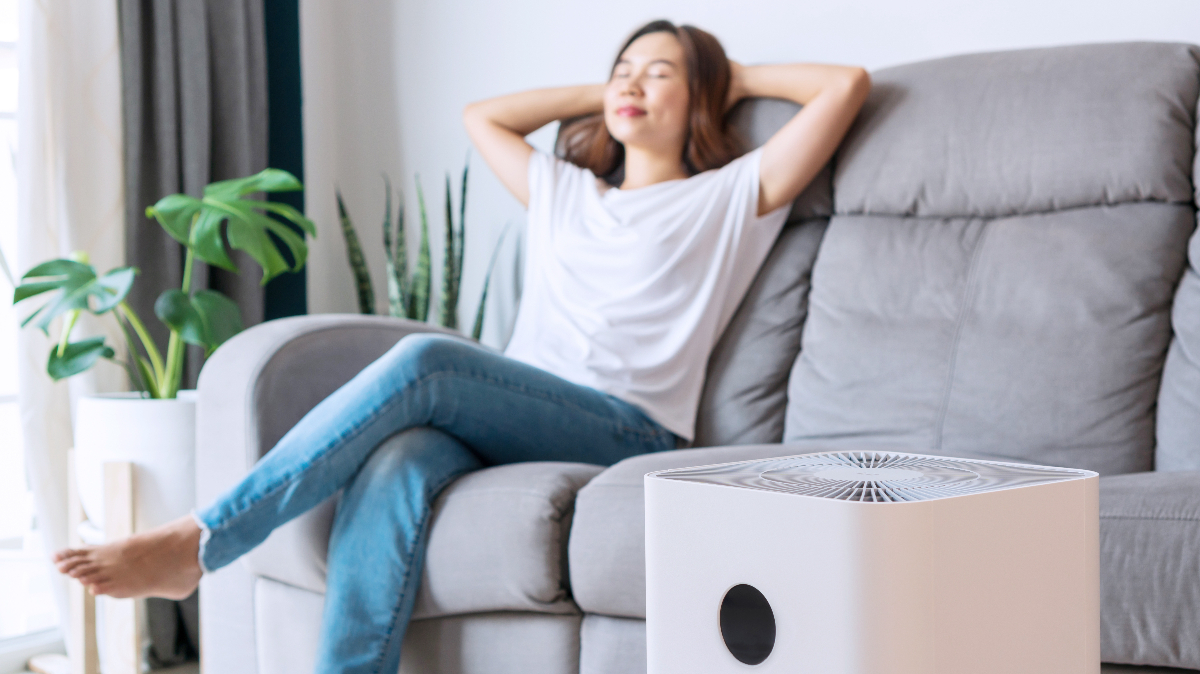
The air circulating in your home can have a huge impact on your family’s health and safety. If it contains particles of dust, mold spores, toxic fumes, pollen, and other pollutants, a resident or family member is likely to suffer from respiratory allergies and related illnesses. Moreover, unclean indoor air could lead to colossal spikes on your energy bills since the HVAC unit will have to overwork to keep your indoors comfortable. To ensure a safe and comfortable indoor space, it pays to make sure the air in your house is clean.
Here are some tips on keeping the air in your house clean.
1. Control the Humidity in Your House
Increased humidity levels cause excessive dampness and moisture buildup in indoor spaces. As a result, the quality of the air in your house is greatly affected, hence affecting your overall health. Dampness can aggravate other unhealthy conditions like asthma and allergies as well as facilitate the growth of mildew, dust mites, and mold.
Moreover, this dampness can cause damage to your property and delicate possessions like crucial documents or cigars. This is why many cigar enthusiasts like storing their cigars in humidor cabinets. When choosing a cigar humidor, the best you can buy is the wooden version as opposed to the acrylic one. While preserving your precious cigars and preventing them from getting dry or soggy, a good humidor will last long. With that said, there are various ways to keep indoor air moisture levels under control. Some of these include:
- Invest in a dehumidifier: While removing moisture in the air, some dehumidifiers can also eliminate pollutants such as molds and dust mites, leaving you with plenty of clean and healthy air to breathe in.
- Fix pipe leaks if any
- Clean the gutters regularly
- Limit warm showers
- Turn on the ventilation fans frequently
- Utilize your air conditioner
- Open the windows regularly
2. Avoid Indoor Smoking
Indoor smoking is another thing you should consider quitting to keep the air in your house fresh and clean. Regardless of whether you keep the house ventilated or not while smoking, indoor smoking is a harmful pollutant to the quality of your indoor air. In fact, indoor smoking makes everyone else in the house a passive smoker, which is also unhealthy. So, consider quitting smoking while in the house to make a significant improvement to your indoor air as well as your overall health.
3. Ventilate
Ventilating your house is possibly the simplest but definitely an effective way to keep your indoor air circulation clean and fresh. In fact, experts emphasize that your house needs a stream of fresh air at least once a day. So, consider opening all the windows early in the morning, during summer evenings, or even after a rainfall. Doing this causes a draft that not only purifies your indoor air but also leaves your house with pleasant fragrances.
4. Practice Proper Garbage Disposal
Wrongly disposed garbage hugely affects the quality of your indoor air, and it also spreads germs. Additionally, trash such as old food debris attracts pests such as cockroaches, mice, and ants, not to mention the likelihood of molds growing on rotting foods. So, avoid all that by disposing of kitchen and other house trash appropriately and outside the house.
5. Remove All Household Dust
Truth be told, removing household dust can really be tricky. This is because we mostly focus only on the dust lingering at the corners and forget about the other indoor airborne particles. Actually, inhaling airborne particles provokes health issues such as coughing and allergies. So, you need to invest in a good vacuum cleaner with a HEPA filter for you to remove all the household dust. With an efficient vacuum cleaner, you can comfortably eliminate all the dust on surfaces and floors.
6. Avoid Toxic Cleaning and Cosmetic Products
Frankly, most cleaning and cosmetic products are chemical-based. Most of them contain harmful Volatile Organic Compounds, also known as VOCs. The VOCs in these products may interfere with the levels of air purity in your house. For cleaning and cosmetic products, watch out for ingredients such as chlorine, ammonia, formaldehyde, and acetaldehyde. Replace these with low-VOC alternatives. You may also simply avoid them and start using organic and natural products. Most importantly, ensure your windows are wide open or use exhaust fans to vent out all the harmful emissions while using these cleaning products.
7. Test Your Air
Often, you may take all the steps to better your indoor air circulation but still realize that something is still lacking. In such a scenario, consider having your indoor air tested by an air conditioning expert. He/she will run a few tests; diagnose what is messing up your indoor air quality, and advise you on a solution.
And there you have it. Having clean air in your home should not be a debatable subject. The above are just a few ways you can achieve a safer and comfortable indoor space with cleaner air.




